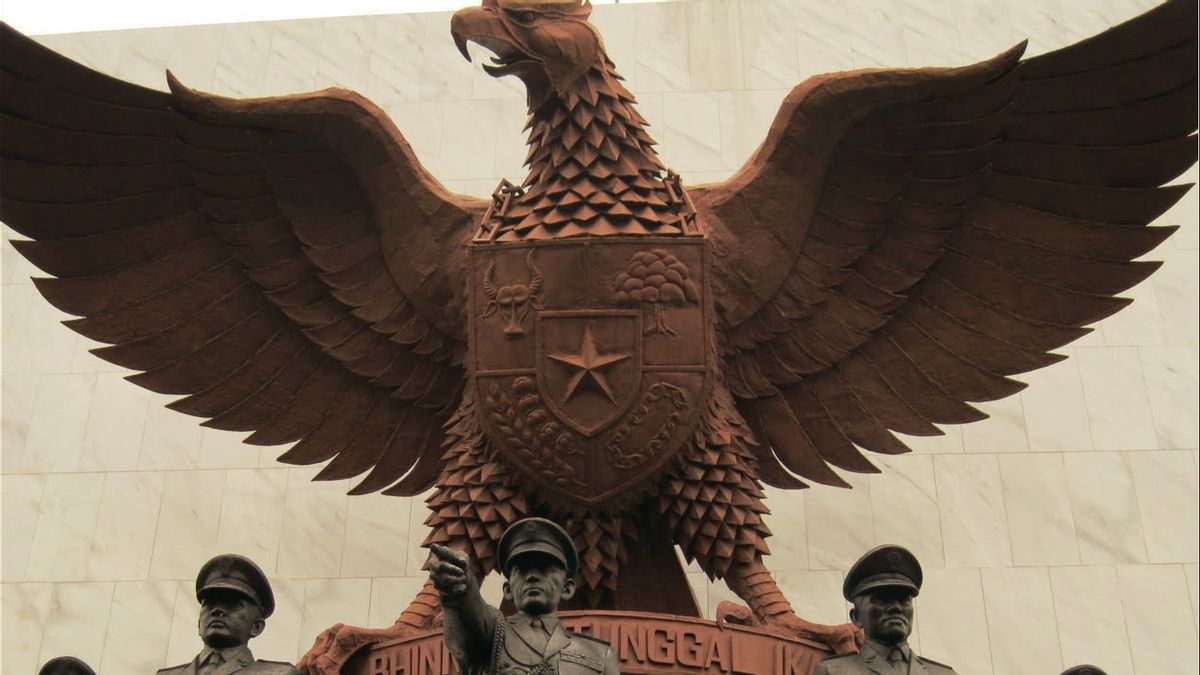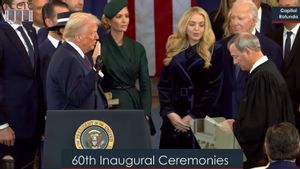JAKARTA - The definition of Pancasila in general is an ideological indonesian nation that contains formulations and guidelines in the state life of all its people.
When talking about the relationship of Pancasila with political ethics, then what must be understood is an "ethical system" itself.
The Issue of Pancasila as Political Ethics
Based on research entitled Political Ethics in Legal Politics in Indonesia (Pancasila as an Ethics System), Pancasila as a political ethics system has several problems, among others.
1. Capital Decadence
Decadence is considered to have plagued the lives of people (especially young people) who endanger the survival of the state. Character education is referred to as a way to deal with a plurality of values—as an effect of globalization.
2. Corruption
Corruption in Indonesia is considered a considerable problem, which impacts the country does not have normative signs to carry out its duties. State organizers are unable to distinguish between "allowed" or "no" restrictions.
3. Development Issues
The third point, as the research published in the Journal of Social and Political Sciences of the University of Jambi, development is still a serious issue. This is due to the lack of individual contributions in national development.
4. Human Rights Violations
Human rights violations are an important highlight in state life in Indonesia. This is characterized by a lack of appreciation of the rights of other citizens.
5. Environmental Damage
The exploitation of nature and environmental damage have a serious impact on aspects of human life including health, transportation, global warming, weather changes, and so on.
Shaping the Ethics of National Life
In order to implement Pancasila as a political ethic, it is necessary to emphasize the establishment of the ethics of national life in the midst of capitalism and globalization that is inevitable as it is today.
The research provides an alternative if the establishment of national life ethics is important, the aim is to encourage the formation of work ethic, discipline, and legal compliance—which is vital for economic growth.
Thus, legal politics must also reach out to various aspects of ethics and morality in the legal system in Indonesia. If this is not done, then the legal product is intended for the benefit of elite groups or groups only.
Ethics Begins with the Political Elite
The establishment of ethics and morality of the legal system in Indonesia should start from the political elite. This is because the attitude of the elite in setting state policies is a reflection of the development of society.
Thus, political elites, as well as state officials, are required to have an honest attitude, trustable, ready to serve, have a good example, humble, big-spirited, and ready to step down from office if proven to be wrong.
In addition to interpreting Pancasila as a political ethic, follow other domestic and foreign news only in VOI, Time to Revolutionize The News!
The English, Chinese, Japanese, Arabic, and French versions are automatically generated by the AI. So there may still be inaccuracies in translating, please always see Indonesian as our main language. (system supported by DigitalSiber.id)












